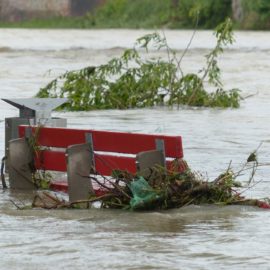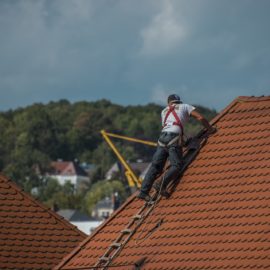
Fewer companies and increasing costs. A bad mixture with flood insurance bills coming in.
The marketplace for homeowners insurance in Louisiana is getting tighter. The number of insurers is in decline. And prices, once steady, only seem to go up, up and up. Just ask Ryan North of Metairie, who relied on the Lighthouse Excalibur Property Insurance Co. until the firm collapsed earlier this year. First, he received a notice that his policy would be assumed by another company. Then, that firm backed out at the last minute. He was able to find a new policy with Lloyds of London, but it came at a hefty price, and there wasn’t much else to like about it either. “I went from having really good coverage with a $1,000 deductible for $4,000 a year, to now having a $9,000 deductible and paying $5,000 a year, with less coverage overall,” said North, a former building contractor.
nola.com
This is a problem all through Louisiana especially since two years of bad storms.
North’s experience is typical in much of south Louisiana, which has been rocked by multiple hurricanes in recent years. Feeling pinched by hundreds of thousands of claims worth billions of dollars, insurers are now in retreat. Seven companies writing policies in Louisiana have failed. At least a dozen companies have submitted withdrawal notices to the Department of Insurance, a step required before leaving the state. As a result, tens of thousands of homeowners are being forced to rely on the state’s insurer of last resort, Louisiana Citizens Property Insurance Corp. On average, homeowners’ insurers raised rates by 6.7% across the state in 2021, according to the LDI. That was three times larger than the average 1.9% rate increase approved the prior year, officials said. Data for 2022 isn’t available yet, but many homeowners and brokers are reporting steep increases. The market is bad enough that Insurance Commissioner Jim Donelon has termed the current situation a “crisis.” He is holding a town hall meeting at the University of New Orleans at 6 p.m. Wednesday to discuss “skyrocketing insurance premiums” as well as the recent raft of company failures. In a recent speech meeting at the Press Club of Baton Rouge, Donelon sought to sound a hopeful note, saying there are still options for homeowners if they shop around. “There are alternatives out there,” he said, “(but) they are hard to find.”
I was lucky as my company stayed in business and my cost dropped considerable.
Homeowners, insurance agents and brokers say the market is being reshaped in other, less obvious ways as companies change the guidelines they follow before writing a policy. Consumers say they now encounter more restrictions, pay more money and often get less coverage in return. “I’m hearing stories that if you don’t have a brand new house or a roof less than 10 years old, you are basically screwed right now,” said North. Virgil Jonson, a broker for 3rd Millennium Insurance & Financial Services in New Orleans East, agreed that the prospects of finding an affordable policy with similar coverage are increasingly difficult. Before Hurricane Katrina, Jonson said 3rd Millennium largely focused on helping commercial property owners find coverage. They stepped up to help nearby residents when it seemed no other companies would, he said. Over time, the company came to rely on a cadre of affordable home insurers to help homeowners get coverage. Many of them have now either failed or fled from the state. One of them was Geovera Specialty Insurance Co., which left earlier this year — one of at least 12 companies to depart in the last two years. Another company was Access Home Insurance Co., which became the third out of the seven companies to go belly-up. “Now who’s left? Louisiana Citizens, that’s it,” Jonson said. “And here we are again with the same situation and there is no solution.”
Loss of insurance companies creates a ripple that will go through more than this year.
The company failures are creating ripple effects that will be with the state for years. Last month, the Louisiana Insurance Guaranty Association, a bailout fund for failed insurers, won approval from the state Bond Commission to borrow $600 million by issuing bonds. The money will be used to settle unpaid claims and to replenish the association’s reserves. Member insurance companies licensed by the state are expected to pay off the bonds. But they can recoup the money through a rebate on their premium taxes – meaning the ultimate result is less money for the state’s general fund. Donelon sees the state’s insurance challenge as one of availability. After Katrina and Hurricane Rita, when insurers left the state in droves, he sought to attract smaller insurers willing to take on the risk of underwriting on the Gulf Coast. Has said this week that he wants to reignite an incentive program created after Katrina. Under the program, the state gave $29 million in subsidies to five companies for moving to the state and writing homeowners policies. The Insure Louisiana Incentive Program was repealed in 2009 after auditors raised concerns that the funds were disbursed before a grant agreement was signed. The remaining funds were then turned over to the treasury. The Legislature recreated the program in the last session but did not fund it. “We were told to come back in December with (a budget request),” Donelon said. “We hope that there will be money available for companies to come and write here.”
This is not environmental but is it? It is the climate we live in and the impact on the citizens. It also may drive people out of South Louisiana or out of the state.



